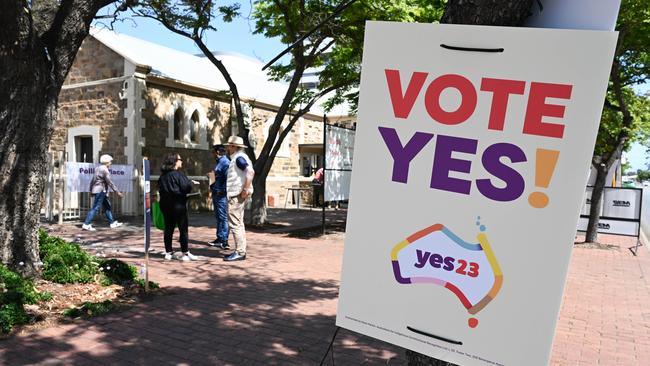Angry words will not close the gap on understanding

Nonetheless, there are still those who seek to speak on behalf of an Aboriginal collective. The decision not to identify signatories to a statement released late on Sunday purporting to represent Aboriginal and Torres Strait Islander leaders, community members and organisations that supported the Yes case underscores this fact. Unfortunately, the language used will only confirm in the minds of many No voters that they made the right decision not to open the way for those with separatist ideals to be inserted into the Australian Constitution. Constitutional expert and Yes proponent Greg Craven is correct when he writes on Tuesday that this rhetoric is “a dead-end car wreck” for Indigenous and non-Indigenous Australians alike. The statement addressed the “occupation” of an Australia that belonged to Indigenous people. “We accept that the majority of non-Indigenous voting Australians have rejected recognition in the Australian Constitution. We do not for one moment accept that this country is not ours,” the statement said. “It is the legitimacy of the non-Indigenous occupation in this country that requires recognition, not the other way around. Our sovereignty has never been ceded.”
The statement said a voice was “sorely needed” in the pursuit of First Nations rights. “We want to talk with our people and our supporters about establishing – independent of the Constitution or legislation – an Aboriginal and Torres Strait Islander voice to take up the cause of justice for our people,” the statement said. Authors of the statement were quick to blame the defeat of the referendum on deliberate “disinformation and misinformation”, which had unleashed a “tsunami of racism”.
It said mainstream media had favoured “a false sense of balance” over facts. But it is claims of misinformation that cannot be justified by the facts. Issues such as the potential scope of the voice and its powers are more correctly described as contested arguments than misinformation. Malcolm Turnbull was able to draw a more insightful view of why the referendum failed. Mr Turnbull, who was against the voice in government and for it in the campaign, did not blame Peter Dutton or misinformation in the social media age. He said the foundational mistake was made in 2017 when Indigenous leaders abandoned the idea of essentially symbolic recognition of Indigenous Australians in the Constitution. He said there was always a rational, reasonable conservative case against entrenching the voice in the Constitution. And that a No case would always exaggerate the risks of change.
The challenge now is for government to respond to a clear message from the referendum that Australians expect action on closing the gap and to know their money is being well spent. Indigenous leaders are perfectly entitled to seek their own representative body outside legislation and the Constitution. But to be taken seriously they must be able to demonstrate that it is truly representative and genuinely focused on tackling the issues everyone says they care about, closing the gap, rather than the sort of revenge politics that has been allowed to rise closer to the surface of public debate.


The disappointment felt by many Indigenous leaders at the failure of the voice referendum is to be expected but the hard work must start immediately to heal the divisions that have been created. Angry words of disrespect towards those who voted No will not be helpful to that process. Clear messages can be drawn from the published responses of Indigenous groups that have been released following a period of self-imposed reflection after the result. One is that Indigenous Australia is not a homogenous group with a uniform view, as was argued by those advocating a No vote throughout the referendum campaign.